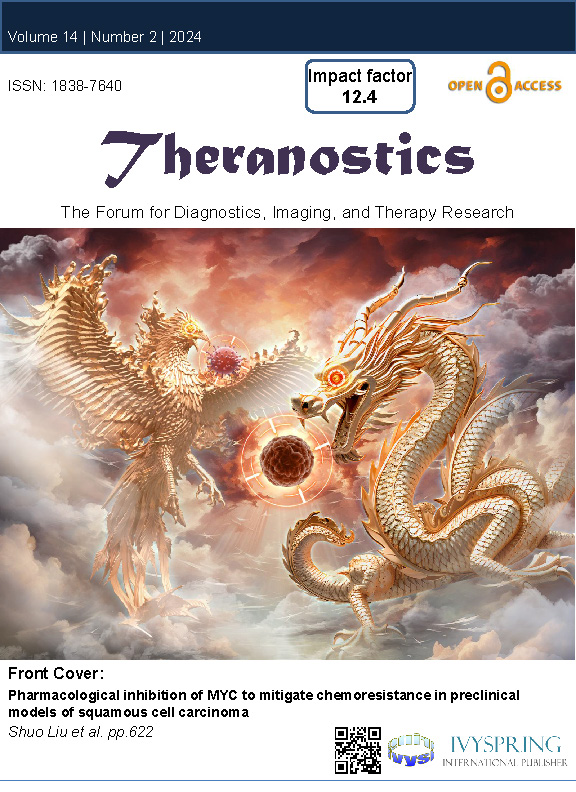增强脑肿瘤治疗能力:嵌合抗原受体巨噬细胞疗法
IF 12.4
1区 医学
Q1 MEDICINE, RESEARCH & EXPERIMENTAL
引用次数: 0
摘要
脑肿瘤因其复杂的生物学特性和有效治疗方法的匮乏,给肿瘤学带来了巨大挑战。免疫疗法的出现为创新治疗策略开辟了新途径。嵌合抗原受体最初是在以 T 细胞为基础的疗法中进行研究的,现在已扩展到包括巨噬细胞,为增强抗肿瘤免疫监视提供了一个引人注目的途径。这一新兴领域有望推动脑肿瘤治疗方案的发展,为抗击中枢神经系统的可怕恶性肿瘤提供潜在的突破口。肿瘤相关巨噬细胞占肿瘤组织的很大一部分,从30%到50%不等,并在免疫受损的微环境中表现出肿瘤促进表型。构建 CAR 巨噬细胞能有效地将 M2 型巨噬细胞重新极化为 M1 型表型,从而产生强大的抗肿瘤作用。CAR-巨噬细胞能将T细胞招募到脑肿瘤部位,从而重塑免疫龛,有效抑制肿瘤生长。在这篇综述中,我们探讨了CAR-M疗法的潜在局限性和优化策略,为这一创新疗法的未来发展方向提供了见解。本文章由计算机程序翻译,如有差异,请以英文原文为准。
Empowering brain tumor management: chimeric antigen receptor macrophage therapy
Brain tumors pose formidable challenges in oncology due to the intricate biology and the scarcity of effective treatment modalities. The emergence of immunotherapy has opened new avenues for innovative therapeutic strategies. Chimeric antigen receptor, originally investigated in T cell-based therapy, has now expanded to encompass macrophages, presenting a compelling avenue for augmenting anti-tumor immune surveillance. This emerging frontier holds promise for advancing the repertoire of therapeutic options against brain tumors, offering potential breakthroughs in combating the formidable malignancies of the central nervous system. Tumor-associated macrophages constitute a substantial portion, ranging from 30% to 50%, of the tumor tissue and exhibit tumor-promoting phenotypes within the immune-compromised microenvironment. Constructing CAR-macrophages can effectively repolarize M2-type macrophages towards an M1-type phenotype, thereby eliciting potent anti-tumor effects. CAR-macrophages can recruit T cells to the brain tumor site, thereby orchestrating a remodeling of the immune niche to effectively inhibit tumor growth. In this review, we explore the potential limitations as well as strategies for optimizing CAR-M therapy, offering insights into the future direction of this innovative therapeutic approach.
求助全文
通过发布文献求助,成功后即可免费获取论文全文。
去求助
来源期刊

Theranostics
MEDICINE, RESEARCH & EXPERIMENTAL-
CiteScore
25.40
自引率
1.60%
发文量
433
审稿时长
1 months
期刊介绍:
Theranostics serves as a pivotal platform for the exchange of clinical and scientific insights within the diagnostic and therapeutic molecular and nanomedicine community, along with allied professions engaged in integrating molecular imaging and therapy. As a multidisciplinary journal, Theranostics showcases innovative research articles spanning fields such as in vitro diagnostics and prognostics, in vivo molecular imaging, molecular therapeutics, image-guided therapy, biosensor technology, nanobiosensors, bioelectronics, system biology, translational medicine, point-of-care applications, and personalized medicine. Encouraging a broad spectrum of biomedical research with potential theranostic applications, the journal rigorously peer-reviews primary research, alongside publishing reviews, news, and commentary that aim to bridge the gap between the laboratory, clinic, and biotechnology industries.
 求助内容:
求助内容: 应助结果提醒方式:
应助结果提醒方式:


